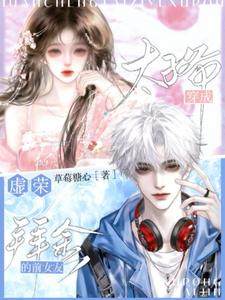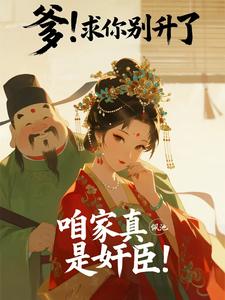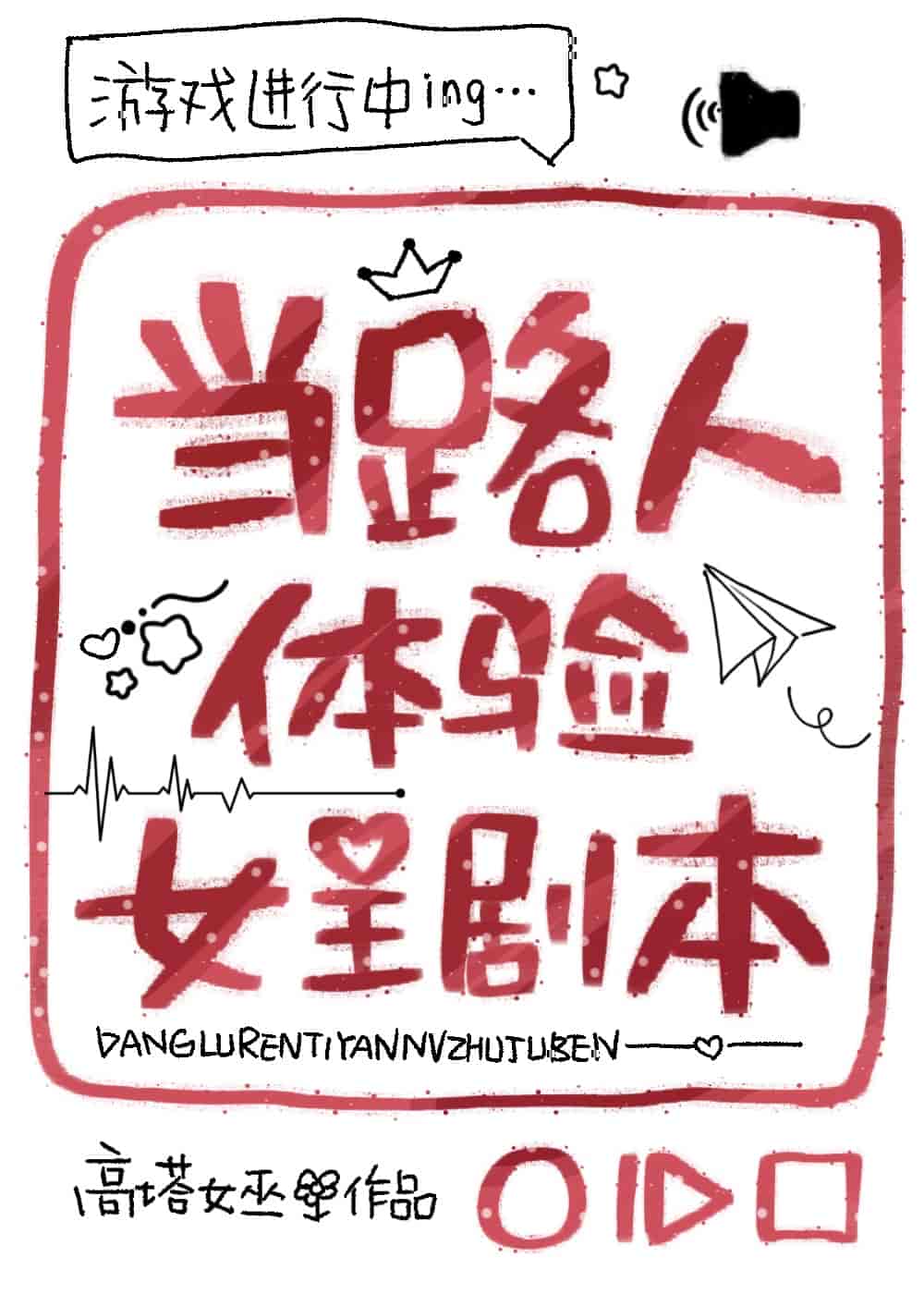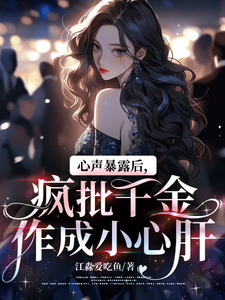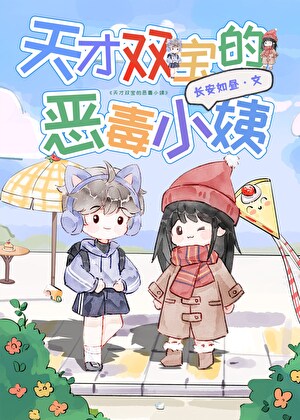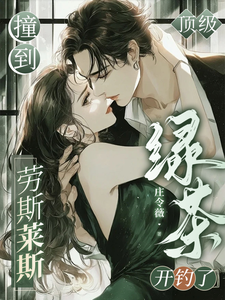Before long, the twelfth month arrived, and the Bian River froze over, bringing the bustling north-south water transport to a complete halt. It was said that in the northern prefectures near Jingdong Road, snow piled up knee-deep, and the government offices had already sealed their official seals ahead of time.
The boatmen and sailors who had toiled along the canal all year, along with the thousands of transport officials working the docks, could finally return home for the New Year.
The day before, the last shipment of vegetables and fruits had arrived in the capital from the south.
This final transport vessel had encountered misfortune early on—shortly after departure, it was caught in a blizzard, delaying its journey. When the snow finally stopped, the ship struggled to reach Chenqiao Town, just twenty li from Bianjing, only for the river ice to thicken further, making it impossible to advance by the boat’s power alone.
Hundreds of trackers, soldiers, and commoners were then hired to chip away at the ice inch by inch, allowing the ship to crawl forward. But just as the bow neared the water gate, the river behind it froze again, leaving the vessel stranded.
For days, they hacked at the ice—only for the front to freeze as soon as the rear was cleared. The ship remained stuck, eventually turning into an ice sculpture.
Later, the emperor decreed: Leave it be. The transport commissioner was ordered to unload the cargo and let the ship serve as temporary shelter for the poor living near the water gate, to help them endure the harsh winter. The vessel would return south when the river thawed in spring.
When the food was unloaded, crowds swarmed the riverbank. Basket after basket of tender winter greens, plump and flavorful Chinese yams, soft lotus roots, and fresh water bamboo shoots were carried off. There were also oranges from Yuezhou (Shaoxing) and Guizhou (Guangxi), Wenzhou’s tangerines, Luzhou’s oranges, Nanchang’s pomelos, Jinhua’s crabapples, and Quanzhou’s longans and plums…
Each basket drew gasps of awe from the onlookers.
How enviable—the southern winter seemed to remain a season of abundance, where rivers never froze, mountains stayed lush with fruit, and food was plentiful across hills, rivers, and streams.
The moment these vegetables and fruits were unloaded, their prices skyrocketed, snatched up in a frenzy. The crowd was so thick that Shen Miao, who had joined the commotion, failed to buy even a single piece.
Still, she wouldn’t have spent hundreds of coins on a single vegetable even if she could. Though life was better now, she hadn’t adopted the habit of splurging recklessly.
The frost-kissed cabbages, radishes, and spinach from her own garden were plenty fresh. And with the slow-growing winter chives, their leaves now slender, she certainly wasn’t lacking for greens in this bitter cold.
As for fruit, when Ninth Brother moved, he hadn’t just transplanted his cherry tree—he’d also brought along a cartload of treats: cherries from his own tree, dates and hawthorns from Qingzhou, pomegranates from Lintong, local grapes from Bianjing, crabapples from Zhangye, and plums and apricots from Daming Prefecture…
The northern winter offered plenty of fruit, but people always craved the rare and exotic, much like travelers in later times—leaving the place they were tired of to visit somewhere others were tired of.
Speaking of Ninth Brother’s move, it had happened swiftly. The day the deed was signed and the keys handed over, he rushed to complete the transfer before the government office closed, earning a disgruntled glare from the clerk who’d been humming his way home.
The next morning, dozens of Xie family servants arrived to clean the house—replacing tiles, fixing doors and windows, and uprooting weeds—all done in a single day.
Two days later, the courtyard was paved with new bricks.
Once the structural work was finished, carts began hauling in furnishings for days on end, drawing curious neighbors from both ends of the alley. Those who didn’t know Ninth Brother speculated: Was some high-ranking official visiting to observe local life? Or, more nervously: Had someone in Willow Lane committed a grave crime?
They gaped as an eighteen-panel ivory screen was unloaded—its frame carved from two tusks, the center a single slab of white jade depicting the Battle of Red Cliffs. (The fashion for emerald-green jade had yet to reach the Song Dynasty; white jade remained the prized treasure.)
And this masterpiece was casually placed in the shabby old house’s main hall, leaving the onlookers dumbstruck. Some swallowed hard, realizing the screen alone was likely worth more than the entire property.
Next came five or six cartloads of books—Ninth Brother had converted the front shop into a study. The street-facing entrance was walled up, leaving only a large window and a small door for light and access. Xie family servants then built floor-to-ceiling bookshelves on all four walls to house his collection.
A single lamp, a rocking chair, and a small table.
With snow falling outside, he would sit amid this sea of books, gently swaying in his bamboo chair as he read.
The biggest headache was Xie Qi’s horse. The massive steed stood nearly as tall as the courtyard wall. But due to sumptuary laws—strict regulations on commoners’ home dimensions—the wall couldn’t exceed five chi and six cun (177 cm). Most households’ walls were even shorter, around four chi and seven cun (150 cm).
When Shen Miao built her house, she’d followed the maximum height but cleverly added broken porcelain shards atop the wall, bringing it to roughly five chi and seven cun (180 cm).
Yet Xie Qi’s horse, not counting its ears, already surpassed that.
Once, when Shen Miao brought Ninth Brother some treats, she spotted two chestnut-brown horse ears twitching above Xie Qi’s wall from afar—an amusing sight.
Horses need space, and this Rolls-Royce of equines couldn’t endure humble living. After just two days tethered in the yard, it grew despondent, refusing food and lying listlessly with folded legs. Xie Qi had no choice but to send it back to Chenzhou to rejoin its fellow steeds.
Rumor had it the chestnut giant perked up immediately upon returning to the Xie family estate, where it had a spacious stable and acres of clover fields to roam—wealthy clans often reserved twenty or thirty mu of land just to grow fodder. Such was the eternal truth: Buying a horse (or car) is easy; maintaining one is hard.
The Rolls-Royce horse soon recovered.
Later, Xie Qi’s mother sent Ninth Brother a donkey via his uncle. Far more suited to proletarian life, the donkey adjusted splendidly to West Willow Lane, eating heartily and producing fifteen jin of dung daily—enough to make Zhou Da pinch his nose while shoveling.
Not long after Ninth Brother settled in, the Heavenly Stems and Earthly Branches chart on Shen Miao’s "Kitchen God’s Code" showed that Lesser Cold, the grand day for collective deity worship, was just three pages away.
The streets were already alive with drums and gongs preparing for the "La Festival." After a year of labor, with farming halted, people celebrated with solemn rites and revelry, praying for blessings and warding off misfortune. That morning, Gu Tusu knocked on Shen Miao’s door—the neighborhood chief had announced that East and West Willow Lanes would jointly craft a "Plague Boat" to be burned outside the city, symbolically expelling pestilence and praying for health and peace in the coming year.
The two alleys of Yangliu belonged to the same "neighborhood ward," where the residents collectively elected a respected elder as the "ward head." To ensure their ward wouldn’t lose face during the year-end sacrificial rituals, every household in Yangliu Alley reached an agreement: each family would contribute five hundred coins to build a massive "plague-sending boat." In previous years, bamboo strips were mostly used for the keel and planks, but this year, they opted for cedar wood to make it even grander—victory was certain!
The exterior would be covered with painted paper, carved with the image of Zhong Kui, the demon-quelling deity, and ferocious ghosts pinned down by tridents. The boat’s body, bow, and stern would be adorned with intricate patterns like dragons, clouds, waves, and flowers.
Small flags bearing the names of each contributing household would be planted all over the boat. Shen Miao didn’t write her own name or Ji Ge’er’s; instead, she deliberately wrote "Shen’s Noodle Shop"—what better advertising opportunity than the crowded, drum-beating chaos of the year-end sacrifice?
Seeing her do this, Aunt Gu quickly had Gou Er rewrite their family’s flag too, replacing Uncle Gu’s name with "Gu’s Winery." By afternoon, word had spread, and soon every flag in the alley bore the names of shops instead of families.
Ninth Brother, who had just moved in, cheerfully contributed his share. Shen Miao was curious what he’d write on his flag, but he simply closed his book and said matter-of-factly, "Naturally, I’ll write 'Shen’s' too. That way, Shen Miao gets two flags—double the visibility."
For a moment, Shen Miao couldn’t describe what she felt.
A faint, tingling warmth spread in her chest.
The construction of the plague-sending boat was entrusted to seasoned craftsmen specializing in ritual objects, so Shen Miao had nothing to worry about. Once she paid her share and settled the flag, she left it to them.
Since this was a communal sacrifice, she focused instead on preparing her own offerings—skimping would earn her a year’s worth of gossip. The year-end sacrifice demanded meticulous preparations: brewing sacrificial wine, making cured meat, pickling Laba garlic, and preparing fresh grains like millet, sorghum, rice, and wheat. These would be placed in small bowls adorned with red paper, symbolizing gratitude to the earth god for a bountiful harvest.
Shen Miao had already made the cured meat and Laba garlic last month—though Qilin had sneaked a few bites of the meat. As for the wine, she wasn’t skilled in brewing it, so she simply bought a jar from Aunt Gu to offer to the gods.
After the sacrifice, the grains from the altar would be cooked into Laba congee, a tradition that endured through the ages. Some later generations fixated on the number eight, insisting on eight types of rice, eight beans, and eight dried ingredients.
Shen Miao? She just used whatever she had at home.
Every household’s Laba congee differed slightly, but two ingredients were indispensable: glutinous rice and red beans. It was said that the grand temples like Daxiangguo and Xingguo prepared their congee this way during their annual Laba "Bathing the Buddha" charity events for the poor.
After all, Laba congee originally came from Buddhist tradition.
Shen Miao settled on her recipe based on what she had left: rice (regular, millet, glutinous, and barley), beans (red and green), and dried fruits (red dates, longan, raisins, peanuts, chestnuts, and lily bulbs).
A respectable, traditional spread.
While she was sorting ingredients in the yard, Ge Shengun from the western alley—Ninth Brother’s neighbor—knocked on her back gate, bowl in hand, to buy instant noodles.
Ge Shengun had recently moved from a Taoist temple and, having never tasted Shen Miao’s cooking before, was now hopelessly addicted—especially to the instant noodles. While the rest of Bianjing had moved on from the trend, he was just getting started.
Tao opened the gate and, recognizing him, didn’t bother asking before calling for Fu Xing to fetch two packs.
"Chicken flavor today, extra sauce—I like it rich," he instructed, peering at the beans soaking in Shen Miao’s basin. He nodded approvingly. "A balanced recipe. Glutinous rice strengthens the kidneys, barley dispels dampness. These grains lean cold, but they perfectly offset the heat of red dates and longan. Just right! Did you study medicine?"
Taoism and medicine were intertwined, and Ge Shengun spoke with authority.
Shen Miao laughed. "No, I just used what was left at home."
"Ah… that’s a bit careless," he sighed, shaking his head as he took his noodles and left.
Yet this "careless" recipe turned out wonderfully.
She dumped all the grains into a clean clay pot and stirred relentlessly with a long-handled ladle to prevent sticking.
The more she stirred, the thicker it got—and the harder to stir.
Making Laba congee was a workout.
Luckily, Shen Miao was strong. Once the red beans had broken down into a velvety paste and the congee turned thick and fragrant, she added sugar and served it. The sweet aroma mingled with those from every household in the alley, blending into one indistinguishable cloud.
She sent Tang Er to invite Ninth Brother and the others from the western alley to share the congee, then took a moment to paste a "Kitchen God" print in the stove room—another year-end custom.
Every household pasted a Kitchen God print in their kitchen and offered sticky malt candy before the sacrifice. "It glues his mouth shut," Aunt Gu explained. "When he returns to heaven to report, he won’t be able to speak ill of us, ensuring a smooth year ahead."
Shen Miao had bought plenty of malt candy. Sister Xiang, sucking on a piece, asked solemnly, "But what if he was going to say nice things?"
Aunt Gu was stumped.
"Besides, we haven’t done anything bad," Sister Xiang added, her big eyes darting as she tried to gather the candy into her arms. "So… I’ll eat it for him!"
Shen Miao flicked her forehead. "Not too much, or your teeth will hurt. Then you’ll regret it."
Sister Xiang licked the gaps where her two bottom teeth had been and immediately recoiled—she never wanted to visit the dentist again!
Shen Miao shook her head. Sister Xiang and Chen Chuan were losing teeth at the same time, but Chen Chuan had lost one painlessly—while biting into a Zhangye apple.
Thanks to Ninth Brother’s gift. Zhangye apples were small and ugly but crisp and sweet. Shen Miao loved them—she preferred crunchy apples.
She found them tastier than those from Wuzhou, which were big, red, and juicy but soft and slightly grainy.
Still good, though. Tao loved the mealy ones, scooping out the flesh with a wooden spoon as if eating fluffy ice.
Either way, Chen Chuan was lucky to avoid the dentist’s pliers—all thanks to a Zhangye apple.
Sister Xiang was different—her two lower front teeth had been loose for ages but stubbornly refused to fall out. She gnawed on crabapples and big bones, yet they stayed put. Aunt Gu suggested tying a thin cotton thread around the tooth, fastening the other end to a door, and then yanking it shut when the child wasn’t paying attention to pull the tooth out.
But Sister Xiang was too terrified. After sweating through the ordeal, she still couldn’t get the thread tied.
Shen Miao’s heart softened, and after days of being worn down by Sister Xiang’s whining and theatrics, she noticed something alarming—tiny new teeth had begun to emerge behind the stubborn baby teeth. The pearly white tips had already pierced the gums, sprouting like fresh bamboo shoots.
Because her baby teeth hadn’t fallen out, Sister Xiang was now growing a double row of teeth.
Shen Miao was startled. There was no choice now—they had to pull them out. She hurriedly took Sister Xiang to a dental clinic.
The whole way there, Sister Xiang dragged her feet, crying and resisting. The moment she spotted the wooden sign hanging outside the Chen Family Clinic—"Skilled Hand in Tooth Care" and "Dental Restoration as Good as New"—she burst into tears before even stepping inside.
Chen Chuan had come along too, holding her hand and comforting her: "Don’t be scared. It’ll just be a quick tug, and it’ll be over. It won’t hurt."
Sister Xiang wasn’t listening. With tears welling in her eyes, the chorus of agonized wails from inside the clinic sent her over the edge. She clung to Chen Chuan’s hand and sobbed loudly.
But they were already here. Better to endure a short pain than a long one.
Steeling herself, Shen Miao pulled Sister Xiang inside. The clinic was tidy and well-organized, with brown medicine cabinets lining the walls, each drawer labeled with traditional herbal remedies. The air was thick with the scent of medicinal herbs.
Four or five bamboo recliners were arranged in the space, alongside a counter displaying an array of delicate tools—long forceps, short tweezers, porcelain jars labeled "Hemostatic" and "Anti-Swelling," and other mysterious instruments that gleamed coldly in the winter light.
Sister Xiang clutched Shen Miao’s sleeve, her face a mask of terror. Heart aching but helpless, Shen Miao resorted to bribery: "It’s alright, pulling baby teeth doesn’t hurt. Winter’s the best time—less risk of infection or bleeding. This is a good thing! Once your teeth are out, you’ll be all grown up. And if you behave, I’ll make you honey-glazed roasted buns as big as both your hands!"
The trick worked. At the mention of roasted buns, Sister Xiang swallowed her saliva, her wails downgrading to sniffles.
The clinic’s doctor, a man with a goatee, washed his hands and approached. Hearing it was just baby teeth, he smiled. "This is the easiest kind—really doesn’t hurt. Open your mouth, let me see."
Sister Xiang shrank back at the sight of the doctor in his dark blue robe. It took coaxing from both Shen Miao and Chen Chuan before she finally opened her mouth, still pleading, "Don’t pull them!"
"I won’t. I’m just looking. Hmm, your teeth are lovely—so neat and clean. You’ve taken good care of them, little girl..." The doctor rambled on soothingly, and Sister Xiang’s guard slowly lowered.
The moment her shoulders relaxed, the doctor struck—one hand propping her jaws apart, the other wielding tiny pliers.
It happened so fast Shen Miao barely registered it.
With two soft pops, the teeth were out. The doctor swiftly stuffed two cotton balls into Sister Xiang’s mouth, instructing her to bite down firmly, then stood to tally the bill:
"Ten coppers per tooth, so twenty in total. Don’t drink anything until the bleeding stops and the sockets scab over. Stick to congee today; tomorrow you can eat normally."
After settling the bill, he wrapped the teeth in rough paper and asked Shen Miao, "Young miss, do you want to keep these? Toss them onto the roof on an auspicious day—it’ll ensure the new teeth grow in straight."
"Yes, please." Shen Miao peered at the teeth—tiny, pale yellow nubs without even roots.
The doctor added, "Once the sockets heal, have her chew on big bones to widen the gums. That’ll help the new teeth shift forward and grow straight."
Shen Miao committed the advice to memory.
It wasn’t until Sister Xiang stood up from the recliner that the pain hit. The metallic taste of blood filled her mouth, but she didn’t dare spit out the cotton. Tears streamed down as she mumbled accusations at the doctor: "Liar... he lied..."
But Shen Miao considered it a success. It could’ve been worse.
While Sister Xiang was getting her teeth pulled, a man on another chair was having a cavity filled. To Shen Miao’s shock, advanced dental restoration already existed—though it looked horrifying.
Another doctor first numbed the man’s mouth with herbs like aconite and acupuncture. Then, using a tiny scalpel, he scraped out the decay. The man howled through the process, requiring two burly assistants to pin down his head and limbs.
After rinsing out a basin of bloody water—which only made the pain worse—the doctor melted a paste of tin, silver foil, and mercury to fill the cavity, capping it with a silver or gold layer.
By the end, the man’s cotton robe was soaked with sweat, his face ghostly pale and swollen. The doctor prescribed pain-relief pills, but his cheeks had already ballooned like he’d stuffed half a bun inside.
Unfazed, the doctors warned him not to brush, spit, or eat. The man, barely alive, slumped against the counter, clutching his swollen face with a weak nod.
Sister Xiang and Chen Chuan trembled at the sight.
No effective anesthesia, no sterilization, mercury fillings—Shen Miao shuddered too. She promptly bought a jar of bitter sophora tooth powder, recommended by the clinic to prevent cavities, and resolved to brush her teeth extra carefully that night.
Recalling the ordeal now, Shen Miao and Sister Xiang both shivered again.
Sister Xiang forgot all about the Kitchen God’s candy and scurried off. After finishing her offerings, Shen Miao stepped out just as Ninth Brother arrived with Yan Shu and Qiu Hao, greeting her with a cheerful bow: "As the cold wanes, may the lady’s fortunes be congee-plete."
They ladled out bowls of thick, sweet porridge. Sister Xiang and Chen Chuan had just finished eating when Liu Douhua and Li Gou'er arrived with a sled, eager to take her ice-skating on the river. Worried, Shen Miao sent Tang Er along with Lei Ting to keep an eye on the children.
"Watch out for ice holes—and kidnappers. Don’t let them out of your sight," she stressed. The frozen Bian River was crowded with revelers these days.
Tang Er agreed heartily and went to fetch the dog.
With most households busy making Laba porridge, the shop saw few customers. Tao and Fu Xing could handle it alone.
As Sister Xiang cheerfully pulled Chen Chuan to head out, Yan Shu turned to glance at Xie Qi, then came over to tug at his sleeve, giving it a little shake.
The chubby little hand said nothing, but Xie Qi swallowed the porridge in his mouth and waved them off. "Go on, you and Qiu Hao can go too."
Yan Shu immediately grabbed Qiu Hao’s hand and skipped after the others, just as excited.
Shen Miao couldn’t help but smile.
The once lively courtyard quickly quieted down, leaving only Shen Miao and Xie Qi behind. With little to do on such a day, the two simply sat beneath the eaves, chatting idly as they slowly sipped their porridge.
Mostly, it was Shen Miao who spoke, while Xie Qi listened quietly, occasionally responding with a soft smile. The minutiae of Shen Miao’s life were simple yet warm, and hearing her speak filled his heart with a deep sense of peace.
Gradually, he finished a bowl of steaming porridge, the beans and rice mingled together, and his thoughts drifted back to the meals they had shared since their first meeting—starting with a simple bowl of hot noodle soup on a boat in spring. Unnoticed, the year had slipped by, and now they stood at the threshold of winter, on the cusp of a new year.
Holding the warm earthenware bowl, he gazed at Shen Miao, her hair neatly coiled into a spiral bun at the nape of her neck.
At that moment, she happened to lower her head to sip her porridge, missing his lingering look. Xie Qi’s eyes traced the lone silver hairpin in her bun, its delicate cloud patterns carved to echo her name.
Warm porridge, the sound of falling snow, sweeping away dust, awaiting the New Year.
This year was about to pass.
How swiftly time had flown. A sudden pang of reluctance gripped him.
"After sending off the Kitchen God and finishing the porridge today, we’ll sweep the house tomorrow, then head out to buy New Year’s goods and prepare for the reunion feast on New Year’s Eve. The shop will likely close in a couple of days," Shen Miao mused between sips of the sweet porridge, already looking forward to the cozy winter days ahead. She turned to Xie Qi. "What about you, Ninth Brother? When do you plan to return to Chenzhou?"
Xie Qi thought for a moment before setting down his empty bowl. "I’ll leave for Chenzhou after Minor Cold passes."
"So, in the next few days." Shen Miao wasn’t surprised. After Laba Festival, the New Year preparations would be in full swing, and it was only right for Ninth Brother to return to his ancestral home to celebrate with his family. She nodded. "That’s as it should be. But the roads are treacherous in this cold—please take care on your journey."
Xie Qi suddenly spoke. "Shen Miao."
He called her name without explanation, then hesitated, lowering his gaze as if struggling with his words. His fingers, resting on the edge of the porch, trembled faintly.
Shen Miao tilted her head, about to ask, when he seemed to finally steel himself. His expression grew solemn, his dark, clear eyes holding hers with unwavering intensity. "There’s something I must tell you."
"What is it?"
"Forgive me if this sounds foolish, but before I met you, I often found life dull and meaningless. I believed myself cursed with misfortune, never knowing what hardship the next moment might bring. I lived in constant unease, afraid to grow close to anyone, terrified I might drag them down with me."
His eyes, clear as if washed by snow, remained fixed on her. Then, unexpectedly, the corners of his lips lifted into a smile—one that sent Shen Miao’s heart pounding wildly. "But now, I understand."
Shen Miao simply watched him, silent.
Her hands curled into her sleeves, fingers tightening unconsciously.
"I am not cursed with misfortune. On the contrary," his voice was softer than the drifting snow, light as a feather brushing against her ear, "I am fortunate."
"All the luck I’ve ever had in this life—I’ve used it all to meet you."
